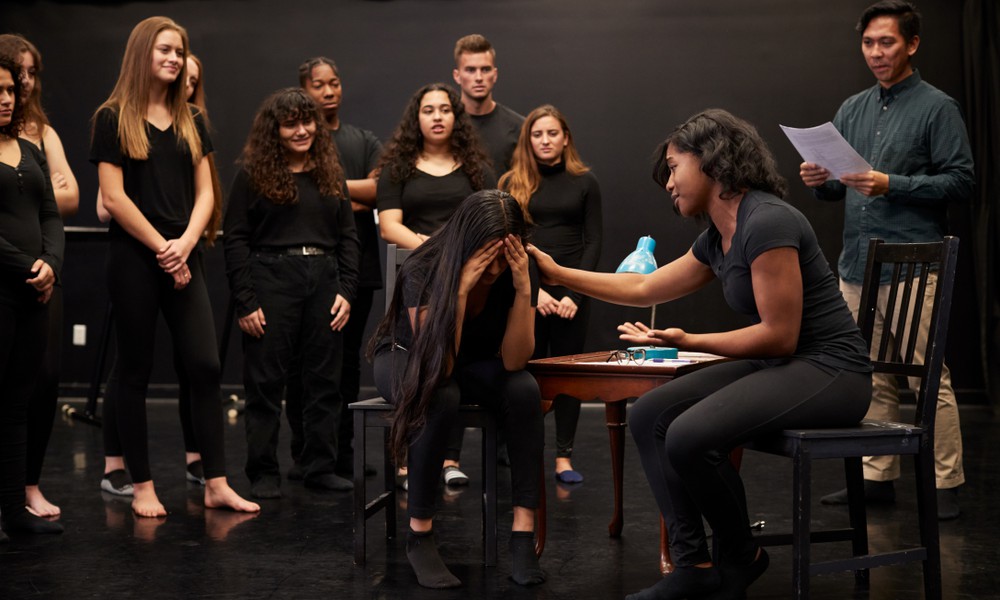Embarking on an acting career or seeking to hone your craft requires more than just talent and determination. One of the most critical steps in an actor’s journey is finding the right acting class that aligns with their aspirations, skill level, and career goals. The appropriate class can not only refine your techniques but also inspire creativity, foster meaningful connections, and instigate personal and professional growth.
Choosing the right acting class is akin to selecting a tool that will shape and mold your artistic capabilities. It’s a decision that should be made with care, considering various factors like the type of acting you’re interested in, the techniques you wish to master, and the kind of environment in which you thrive. This choice can significantly impact your development as an actor, influencing how you approach roles, connect with characters, and engage with audiences.
In the realm of acting classes, there’s a diverse array of options available, each designed to cater to different facets of the acting craft. From foundational courses that introduce the basics of acting to specialized workshops focusing on specific skills like on-camera techniques or voice modulation, the opportunities for learning and growth are vast. Understanding the nuances of these different classes, the methodologies they employ, and the outcomes they aim to achieve is crucial in making an informed decision that aligns with your personal and professional goals as an actor.
In this guide, we’ll explore the different types of acting classes available, delve into the various acting techniques taught, and discuss how to select a teacher that resonates with your artistic sensibilities. Whether you’re a budding actor taking your first steps in the industry or an experienced performer looking to deepen your craft, this exploration will aid you in selecting the acting class that best fits your journey, helping you to unlock your full potential as an actor.
Understanding Your Goals
First, identify what you want to achieve. Are you looking to improve your audition technique, delve into a specific acting method, or simply explore the world of acting? Your goals will significantly influence the type of class that’s best for you.
Types of Acting Classes
-
1. Basic Acting Classes
Basic acting classes are foundational courses that introduce you to the world of acting. They typically cover:
- Fundamental Techniques: You’ll learn the basics of voice projection, body language, and emotional expression.
- Improvisation: These exercises help develop spontaneity and creativity, teaching you to think quickly and adapt to unexpected situations on stage or screen.
- Scene Study: An introduction to analyzing and performing short scenes, helping you understand character motivation and narrative context.
- Audition Techniques: Essential tips on how to prepare and present yourself during auditions.
2. Scene Study Classes
Scene study classes offer a more focused exploration of acting:
- In-depth Analysis: You’ll learn to break down scenes from plays and films, understanding character objectives, subtext, and relationships.
- Performance: Students rehearse and perform scenes, receiving detailed feedback on their interpretation and delivery.
- Collaboration: These classes often emphasize working with scene partners, fostering a sense of ensemble and mutual support.
3. On-Camera Acting Classes
On-camera acting classes are crucial for actors aiming to work in film and television:
- Camera Technique: Learn how to modulate your performance for the camera, understanding the nuances of frame size and continuity.
- Self-Taping: With the rise of digital auditions, these classes often teach how to create compelling self-tape auditions.
- On-Set Etiquette: Understanding the dynamics and terminology of a film set can be invaluable for actors new to the medium.
4. Voice and Movement Classes
Voice and movement classes focus on the actor’s instrument – their body and voice:
- Voice Training: Techniques to improve vocal strength, clarity, and flexibility, ensuring your voice carries emotion and intention.
- Physicality: Explore movement techniques to increase your physical presence, character embodiment, and expressiveness on stage or screen.
- Dialects: Some classes may include training in accents and dialects, expanding your versatility as an actor.
5. Method Acting Classes
Method acting classes delve into the techniques that encourage deep emotional authenticity:
- Emotional Memory: Exercises that help actors draw upon their own experiences to inform their character’s emotions.
- Character Immersion: Techniques to live and breathe as your character, both on and off stage, to enhance believability.
- Sense Memory: Training to use your senses to evoke emotions and reactions, grounding your performance in reality.
6. Meisner Technique Classes
Meisner technique emphasizes being present and reactive:
- Repetition Exercises: A core component where actors repeat phrases with varying emotional intent, fostering responsiveness and connection.
- Independent Activities: Actors engage in simple tasks while maintaining emotional truth, learning to balance internal focus with external engagement.
7. Improvisation Classes
Improvisation is not just for comedians; it’s a vital skill for all actors:
- Spontaneity: Develop the ability to think and react quickly, a skill that can enhance scripted performances as well.
- Creativity: Improv exercises boost your ability to create compelling characters and scenarios on the spot.
- Listening and Reacting: Learn to truly listen and respond to your scene partners, a key component of believable acting.
Choosing the Right Teacher
The instructor’s experience, teaching style, and philosophy are critical. Look for teachers who have a solid professional background and a teaching approach that resonates with you. Consider attending a trial class or workshop to get a sense of their style and the class atmosphere.
Class Size and Environment
The class size can significantly impact your learning experience. Smaller classes offer more personalized attention, while larger ones may provide a broader range of perspectives and scenes. The environment should be supportive and challenging, encouraging you to stretch your boundaries safely.
Feedback and Networking
Choose a class that provides constructive feedback and fosters a network of fellow actors. These relationships can be invaluable for your growth and career.
Financial and Time Commitment
Consider your budget and schedule. While it’s essential to invest in your education, ensure the class is affordable and fits your time commitments.
Research and Reviews
Do your homework. Research the class, read reviews, and talk to current or former students. This can provide insights into the class’s effectiveness and whether it’s the right fit for you.
In conclusion, the right acting class can be a transformative experience, offering not just technical skills but also fostering creativity, confidence, and connections. Take your time to explore your options, understand what you want to achieve, and choose a class that aligns with your aspirations and values as an actor. Your journey in acting is unique, and the right class can be a significant step forward in your career.







